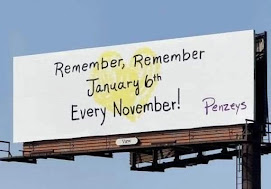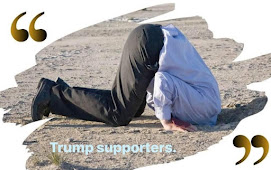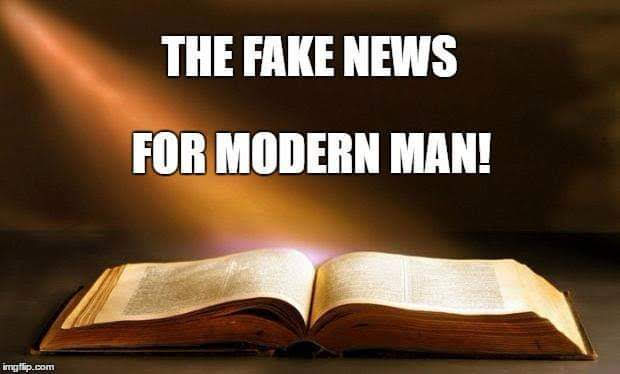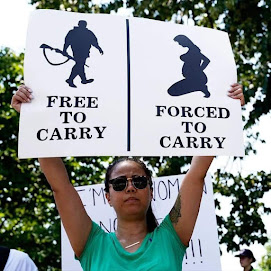How many of you remember, or how many have even heard of, the Battle of Blair Mountain? It truly is one of the neglected and buried stories of the labor struggle in this country. People had to fight, and in many cases die, to advance the rights of workers.
Chris Hedges recaps the little-known struggle of coal miners in West Virginia in The Battle of Blair Mountain.
The Battle of Blair Mountain
by Chris Hedges
Joe Sacco and I, one afternoon when we were working in southern West Virginia on our book "Days of Destruction, Days of Revolt," parked our car on the side of a road. We walked with Kenny King into the woods covering the slopes of Blair Mountain. King is leading an effort to halt companies from extracting coal by blasting apart the mountain, the site in the early 1920s of the largest armed insurrection in the United States since the Civil War.
Blair Mountain, amid today's rising corporate exploitation and state repression, represents a piece of American history that corporate capitalists, and especially the coal companies, would have us forget. It is a reminder that citizens have a right to resist a corporate machine intent on subjugating them. It is a reminder that all the openings of our democracy were achieved with the toil, anguish and sometimes blood of radicals and popular fronts, from labor unions to anarchists, socialists and communists. But this is not approved history. We are instructed by the power elite to worship at approved shrines -- plantation estates erected for wealthy slaveholders and land speculators such as George Washington, or the gilded domes of authority in the nation's capital.
 As we walked, King, a member of the Friends of Blair Mountain, an organization formed to have the site declared a national park, swept a metal detector over the soil. When it went off he knelt. He dug with a trowel until he unearthed a bullet casing, which he handed to me. I recognized it as a .30-30, the kind of ammunition my grandfather and I used when we hunted deer in Maine. Winchester lever-action rifles, which took the .30-30 round, were widely used by the rebellious miners.
As we walked, King, a member of the Friends of Blair Mountain, an organization formed to have the site declared a national park, swept a metal detector over the soil. When it went off he knelt. He dug with a trowel until he unearthed a bullet casing, which he handed to me. I recognized it as a .30-30, the kind of ammunition my grandfather and I used when we hunted deer in Maine. Winchester lever-action rifles, which took the .30-30 round, were widely used by the rebellious miners.
In late August and early September 1921 in West Virginia's Logan County as many as 15,000 armed miners, some of them allegedly provided with weapons by the United Mine Workers of America, mounted an insurrection after a series of assassinations of union leaders and their chief supporters, as well as mass evictions, blacklistings and wholesale firings by coal companies determined to break union organizing. Miners in other coal fields across the United States had concluded a strike that lasted two months and ended with a 27 percent pay increase. The miners in West Virginia and eastern Kentucky wanted the same. They wanted to be freed from the debt peonage of the company stores, to be paid fairly for their work, to have better safety in the mines, to fight back against the judges, politicians, journalists and civil authorities who had sold out to Big Coal, and to have a union. They grasped that unchallenged and unregulated corporate power was a form of enslavement. And they grasped that it was only through a union that they had any hope of winning.
Joe and I visited the grave of Sid Hatfield in a hilltop cemetery near the Tug River in Buskirk, Ky. The headstone, which is engraved with an image of Hatfield's face, reads in part: "Defender of the rights of working people, gunned down by Felts detectives on the steps of the McDowell County Courthouse... His murder triggered the miners' rebellion at the Battle of Blair Mountain." Hatfield's brief life is a microcosm of what can happen when one does not sell out to the powerful. The police chief of Matewan, W.Va., he turned down the coal companies' offer of what was then the small fortune of $300 a month to turn against the miners. Law enforcement, with the exception of a few renegades such as Hatfield, was stripped, as is true now in corporate America, of any pretense of impartiality. Miners who wanted jobs had to sign "yaller dog" contracts promising they would not "affiliate with or assist or give aid to any labor organization," under penalty of immediate loss of jobs and company housing. Baldwin-Felts spies, private security goons hired by the mine owners, informed on miners who talked of organizing. This led to dismissal, blacklisting, beating and sometimes death. The coal fields were dominated by company towns. Corporate power had seeped into every facet of existence. And resistance was costly.
"For more than twenty years, coal operators had controlled their very being; had arranged for their homes and towns, churches, schools, and recreation centers; had provided doctors and teachers and preachers; had employed many of their law officers; had even selected silent motion picture shows that were beginning to appear in theaters; had told them, finally, where and how they were to live and discharged those who did not conform," Lon Savage wrote of the coal miners in his book "Thunder in the Mountains." "In this context, the union's organizing campaign gave the miners a new vision: not only better pay and working conditions but independence, power, freedom, justice, and prestige for people who felt they had lost them all."
Denise Giardina, in her lyrical and moving novel of the mine wars, "Storming Heaven," has union organizer Rondal Lloyd wonder what it is that finally makes a passive and cowed population rebel.
"Who can say why the miners were ready to listen to me?" he asks. "They broke their backs and died of roof falls and rib rolls and gas, their children went to bed hungry, and died of the typhoid, their wives took the consumption, they themselves coughed and spit up. True enough.
They stayed in debt to the company store, they had no say at the mine or freedom of any kind, they could be let go at a moment's notice and put out in the road, or beaten, or shot. All true. But it had always been that way, and they never fought back. Everything had always been the way it was, we were all pilgrims of sorrow, and only Jesus or the Virgin Mary could make it right. So why did they listen this time? Why did they decide that Jesus might not wait two thousand years for the kingdom to come, that Jesus might kick a little ass in the here and now?"
"Hell, it aint got nothing to do with Jesus," the character Talcott tells him. "Half of em dont believe in Jesus. They just stood all they can stand, and they dont care for it." They stayed in debt to the company store, they had no say at the mine or freedom of any kind, they could be let go at a moment's notice and put out in the road, or beaten, or shot. All true. But it had always been that way, and they never fought back. Everything had always been the way it was, we were all pilgrims of sorrow, and only Jesus or the Virgin Mary could make it right. So why did they listen this time? Why did they decide that Jesus might not wait two thousand years for the kingdom to come, that Jesus might kick a little ass in the here and now?"
Sound familiar? It is an old and cruel tactic in any company town. Reduce wages and benefits to subsistence level. Break unions. Gut social assistance programs. Buy and sell elected officials and judges. Fill the airwaves with mindless diversion and corporate propaganda. Pay off the press. Poison the soil, the air and the water to extract natural resources and leave behind a devastated wasteland. Plunge workers into debt. Leave them owing more on their houses than the structures are worth. Make sure the children will be burdened by tens of thousands of dollars lent to them for an education and will be unable to find decent jobs. Make sure that everything from hospital bills to car payments to credit card fees exact increasing pounds of flesh. And when workers stumble, when they cannot pay soaring interest rates, jack up rates further and deploy predators from debt collection agencies to harass the debtors and seize their assets. Then toss them away. Company towns all look the same. And we live in the biggest one on earth.
The coal companies, to break a strike in the spring of 1920, sent in squads of Baldwin-Felts detectives, nicknamed "gun thugs" by the miners, to evict miners and their families from company housing. Soon hundreds of families were living in squalid, muddy tent encampments. During an eviction on May 19 of about a dozen miners and their families -- in which, as today, possessions were carted out and dumped into the street -- Hatfield ordered the arrest of the company goons. He confronted the "gun thugs" at the train station at Matewan after the evictions. Shooting broke out. When it was over, seven Baldwin-Felts detectives, including Albert and Lee Felts, were dead. Another detective was wounded. Two miners were killed. Matewan's mayor, Cabell Testerman, was mortally wounded. The gun battle emboldened the miners. By July there was almost no coal coming out of the mines.
"It is freedom or death, and your children will be free," Mother Jones told the miners. "We are not going to leave a slave class to the coming generation, and I want to say to you the next generation will not charge us for what we have done; they will charge and condemn us for what we have left undone."
Hatfield was acquitted of murder charges in January 1921. The decision infuriated the mine owners. And Hatfield became a marked man. After his acquittal of murder, coal bosses had him charged with dynamiting a coal tipple. When Hatfield and his young wife, as well as a friend, Ed Chambers, and Chambers' wife, walked up the courthouse steps in Welch, W.Va., for the new trial, the two men were assassinated by Baldwin-Felts agents standing at the top. The assassinations set off the insurrection and triggered the Blair Mountain rebellion. The coal owners hastily organized militias and recruited units of heavily armed law enforcement officers. They hired private airplanes to drop homemade explosives on miners encamped on the mountain. Billy Mitchell, one of the early advocates of air power, volunteered the Army's 88th Squadron to carry out aerial surveillance for the coal companies.
The armed miners, many of them veterans of World War I, fought militias and police, who were equipped with heavy machine guns, for five days.
You'll have to click here to read the rest, and you should.


























No comments:
Post a Comment